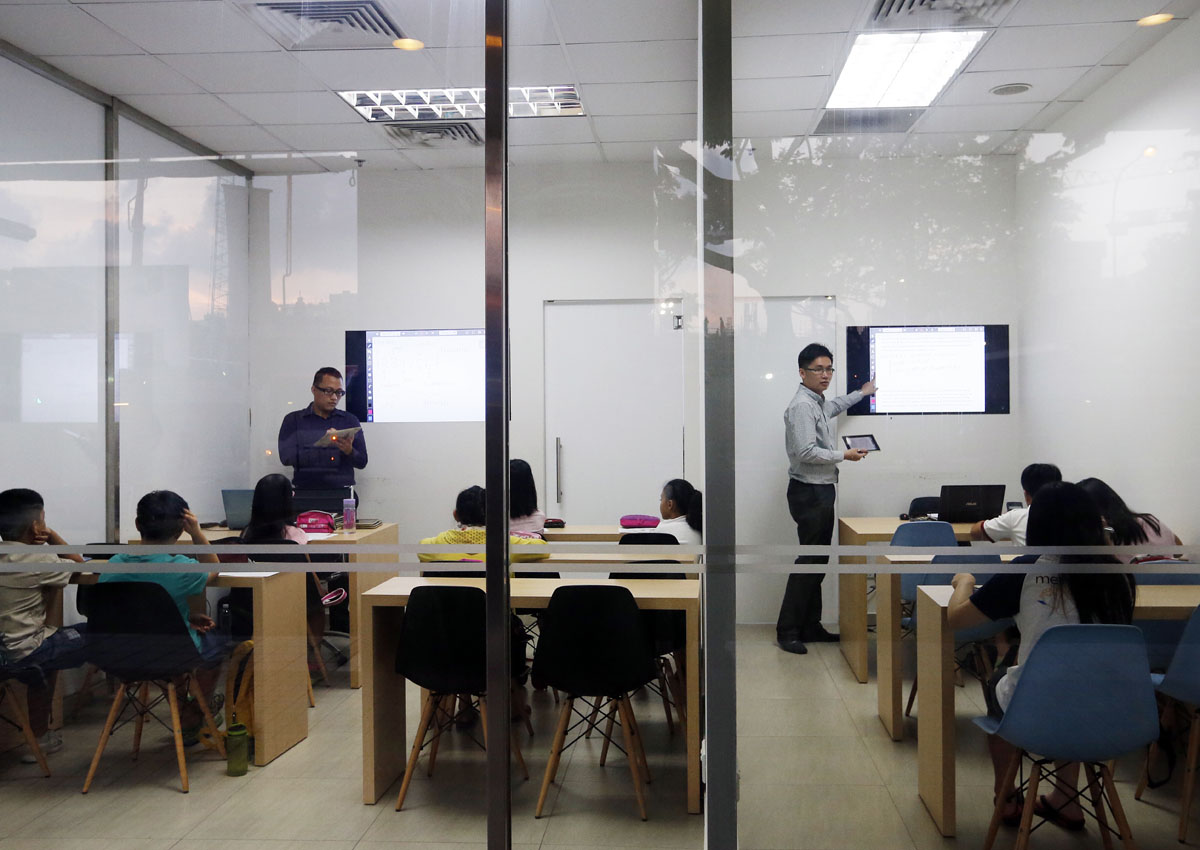From incorporating free wealth-management advice into lessons to offering shuttle-bus services, the tuition race in Singapore has entered a new and more aggressive phase.
No longer is the industry dominated by home tutors and small neighbourhood outfits.
Instead, they are chains in malls with deep pockets, multiple branches and snazzy marketing.
There are also more of them. There are now some 600 tuition centres registered with the Education Ministry, up from about 500 in 2011.
Centres with 10 or more students must be registered.
It is, after all, a billion-dollar industry. Singaporeans are spending a staggering $1.1 billion a year on tuition, according to the Household Expenditure Survey released in 2014.
This is nearly double the $650 million households here spent in 2004.
To grab a slice of this lucrative pie, tuition-centre players are upping their game.
The Physics Cafe in Toa Payoh, for example, has shuttle buses to send its students to MRT interchanges such as Paya Lebar and Jurong East.
Edmund Quek of Economics Cafe Learning Centre in Bishan entices students with not just lessons in economics, but also free tips on how they can increase their wealth.
What has become a marketing mainstay: photographs of tutors, with dazzling smiles and promises of As, plastered on the facades of tuition centres.
Many are former school teachers turned tutors.
The seemingly inexorable rise of what experts have termed the “shadow education” system comes amid greater competition in schools, say education experts.
National University of Singapore economics lecturer Kelvin Seah explained that the trend may also be due to the rising incomes of Singaporeans over the past few years.
“Parents are now more willing than ever before to spend top dollar on tuition lessons for their children,” he said.
Timothy Chan, director of SIM Global Education’s academic division, said: “To a large extent, academic performance has an impact on the education opportunities available for a student in his next phase of studies.
“Thus, it is of no surprise that parents send their kids for tuition, whether or not their kids actually benefit from attending extra classes.”
This means that it is not just the struggling students getting tuition. More top students are attending classes too, note centre operators. Keng Jun Hao, 24, managing director of the Real Education Centre, said some of these students want to maintain their top grades while others feel they can improve even more.
“A majority of them are afraid of losing out to other students who are attending tuition,” he added.
The arms race is exacerbated by parents who want their kids to get a head start, said Kenneth Ng, 40, managing director of Aspire Hub Education Centre Group, which has nine centres.
However, experts warn that excessive tuition can be counter-productive.
Dr Seah explained: “Students might grow to dislike the subject when they are forced to attend tuition lessons.”
calyang@sph.com.sg

Get MyPaper for more stories.






